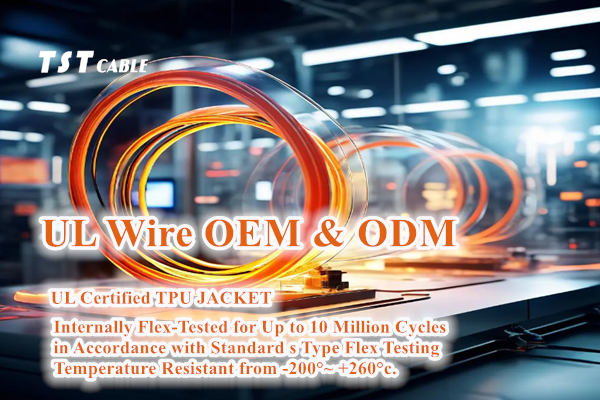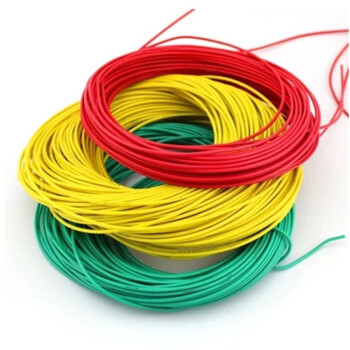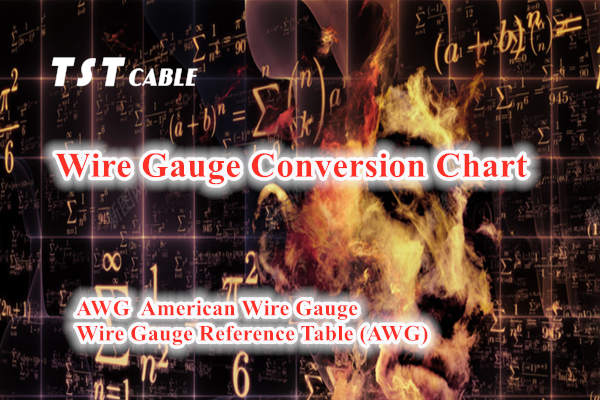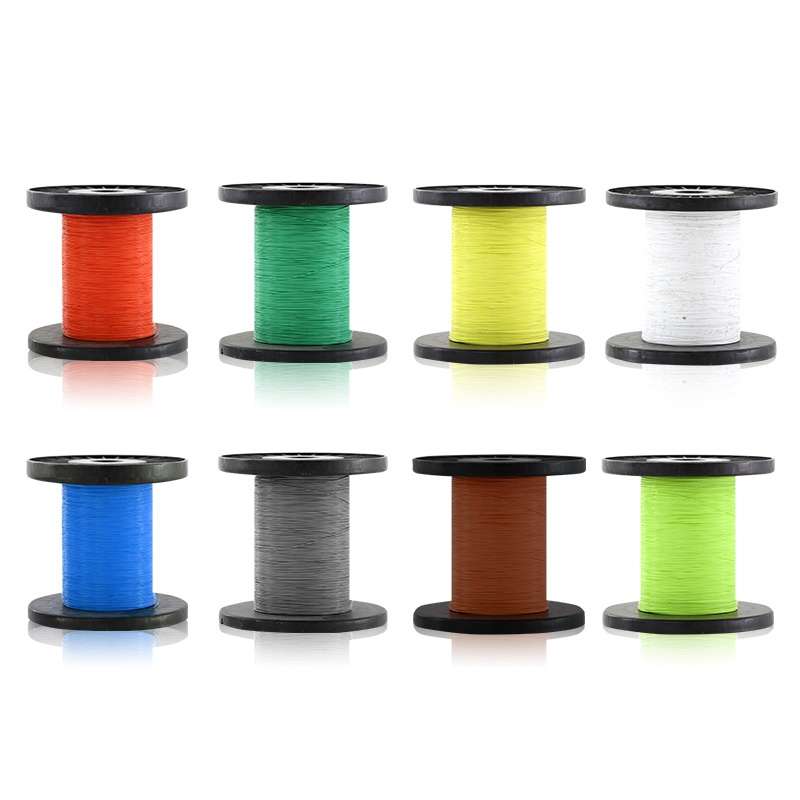Teflon wire FEP (fluorinated ethylene propylene copolymer) insulated wire is a high-performance wire, known for its excellent electrical properties, high temperature resistance, chemical resistance, and low smoke and low toxicity. Below TST CABLES explains the characteristics, applications, technical explanations, and testing of FEP insulated wires, hoping to help friends who are interested in Teflon cable FEP insulated wires.

Overview of Teflon FEP insulated wires
Definition: Teflon FEP insulated wires refer to wires and cables that use Teflon FEP as insulating materials.
Features: Teflon FEP insulated wires have excellent electrical properties, high temperature resistance, chemical resistance, low smoke and low toxicity, and are suitable for a variety of harsh environments.
Standards: Common Teflon FEP insulated wire standards include UL1007, UL1061, UL1123, etc. These standards specify the requirements for electrical properties, mechanical properties, and combustion properties of wires.
There are three common forms of FEP fluoroplastic wires: single-core wires, coaxial wires, and multi-core wires. The following are introduced separately:
- Multi-core wires: single-core wires or coaxial wires are twisted together to make multi-core wires. There are twisted pairs and non-twisted pairs, which are used for industrial computer control and automation instrument control respectively. For special occasions, such FEP fluoroplastic wires are also used for Category 5 and Category 5e wires, data transmission, audio and video transmission, etc.
- Coaxial wires: The inner conductor is a single or multi-strand copper lead (tinned copper silver copper wire), with a diameter of 1.25~1.6MM, and there are three insulation forms: A. Fluoroplastic insulation, with a thickness of 0.5~0.7MM, B. Fluoroplastic foam insulation, with a thickness of 2.5~3.0MM, C. Fluoroplastic and polyethylene combined insulation, that is, the inner layer is insulated with fluoroplastic and the outer layer is insulated with polyethylene, and the thickness of the fluoroplastic is 0.04~0.07MM. It is worth mentioning that the coaxial wires insulated by fluoroplastics and polyethylene combine the advantages of product performance and material cost, and are worthy of vigorous promotion. This type of wire is often used as a connecting wire for radio frequency wires and electronic equipment.
- Single-core wire: also known as high-temperature wire, its structure is that the inner conductor is a single or multi-strand copper wire (tinned copper wire), the outer diameter of the conductor is 0.4~2.0MM, the insulation is fluoroplastic, and the thickness of the insulation layer is 0.3~0.5MM. It is often used as aviation wires, wiring of electronic and electrical equipment, and lighting wires for special occasions.
Features of FEP insulated wires
High temperature resistance: FEP insulated wires can work stably in high temperature environments, with a maximum operating temperature of up to 200°C.
Chemical resistance: It has good tolerance to a variety of chemicals and is suitable for chemical industrial environments.
Low smoke and low toxicity: It produces less smoke and toxic gases when burning, and is suitable for applications requiring low smoke and low toxicity characteristics.
Electrical insulation: It provides excellent electrical insulation performance and is suitable for electrical applications.
Flexibility: Even under low temperature conditions, FEP insulated wires can still maintain good flexibility, which is easy to bend and install.
Flame retardancy: It has good flame retardant properties and is suitable for applications that require flame retardant properties.
Environmental protection: FEP materials are non-toxic and harmless and meet environmental protection requirements.
Application areas of FEP insulated wires
Industrial automation: It is suitable for internal connecting wires of industrial automation equipment.
Heating equipment: It is suitable for wires and cables in high temperature environments such as heating equipment and ovens.
Automobile manufacturing industry: It is suitable for wires and cables in the engine compartment of automobiles.
Home appliance industry: It is suitable for wires and cables of high temperature appliances such as kitchen appliances and water heaters.
Aerospace: It is suitable for wires and cables in the aerospace field because it can withstand extreme temperature changes.
Medical equipment: It is suitable for wires and cables in medical equipment, such as monitoring equipment, therapeutic instruments, etc.
Laboratory equipment: It is suitable for wires and cables in laboratory equipment, such as high temperature experimental furnaces, etc.
Technical specifications of FEP insulated wires
Conductor material: It is usually tinned copper wire or multi-strand tinned copper stranded wire.
Insulation material: FEP (fluorinated ethylene propylene copolymer).
Rated voltage: According to different standards, the rated voltage varies, for example, the rated voltage of UL1007 is 600V.
Temperature range: FEP insulated wire can usually be used in the temperature range of -60°C to +200°C, and some models can reach higher temperatures.
Flammability rating: According to different standards, FEP insulated wire may have different flame ratings, such as VW-1, FT1, etc.
Technical parameters of FEP insulated wire
Conductor material:
Common materials: tinned copper wire or multi-strand tinned copper stranded wire.
Conductor structure: single strand or stranded conductor.
Physical and electrical properties of FEP insulated wire
Rated temperature: 80 ℃ to 200 ℃
Rated voltage: 600 V
Insulation potential strength: 2000 VAC/min
Maximum wire resistance: 62.5 Ω/km
FEP insulated wire standards and tests
UL grade AWM: can be manufactured in the United States.
UL Topic 758 UL File No.: E108485.
Passed UL VW-1 vertical burning test.
UL1007: Applicable to single-strand tinned copper wire with a diameter less than 30AWG, with a maximum operating temperature of 200°C.
UL1061: Applicable to multi-strand tinned copper wire, with a maximum operating temperature of 200°C.
UL1123: Applicable to wires and cables in high temperature environments, with a maximum operating temperature of up to 200°C.
Other certifications: EN, CE, TUV, CSA, etc.
FEP insulated wire test items
Electrical performance test: including conductor resistance test, withstand voltage test, insulation resistance test, etc.
Burning performance test: including vertical burning test, horizontal burning test, etc., to ensure that the cable has good flame retardant properties.
Physical performance test: including tensile test before and after aging, tensile test, etc., to evaluate the mechanical strength and durability of the cable.
Environmental adaptability test: including high and low temperature resistance test, chemical corrosion resistance test, etc., to ensure the performance and safety of the cable under different environmental conditions.
FEP insulated wire is widely used in many industries due to its excellent high temperature resistance, good flexibility and chemical resistance. By strictly following UL standards for manufacturing and testing, FEP insulated wires can ensure stable and reliable operation in various harsh environmental conditions, making them an ideal choice for many high-temperature and chemical applications.
The specific test details and technical specifications of FEP insulated wires may vary. It is recommended to directly email TST CABLES engineers to obtain the most accurate information.
FEP insulated wire insulation material:
FEP: As an insulating material, it has good high temperature resistance and chemical stability.
FEP insulated wire rated voltage:
Range: Usually 600V or higher, depending on the model and standard.
Typical value: For example, the rated voltage of UL1123 is 600V.
FEP insulated wire operating temperature range:
Low temperature performance: Usually able to maintain flexibility at -60°C.
High temperature performance: The maximum operating temperature can reach 200°C to 250°C, depending on the model.
Typical value: For example, the temperature range of UL1123 is -60°C to +200°C.
FEP insulated wire combustion performance:
Flame retardant grade: According to different standards, FEP insulated wire may have different flame retardant grades, such as VW-1, FT1, etc.
Flame test: vertical burning test, horizontal burning test, etc.
FEP insulated wire physical properties:
Tensile strength: Indicates the strength of the cable under tension.
Bending radius: The minimum bending radius is usually several times the outer diameter of the cable.
Tensile performance: Tests the breakage of the cable under tension.
FEP insulated wire electrical properties:
Conductor resistance: Indicates the resistance value of the conductor at a specific temperature.
Insulation resistance: Indicates the resistance value of the insulating material under a specific voltage.
Withstand voltage test: Tests the insulation performance of the cable under high voltage.
FEP insulated wire environmental adaptability:
Chemical resistance: Good tolerance to a variety of chemicals.
Weather resistance: Able to be used for a long time in outdoor environments.
Oil resistance: Able to resist the influence of grease and fuel.
FEP insulated wire size specifications:
Conductor diameter: According to AWG specifications (American Wire Gauge).
Insulation thickness: According to model and standard.
Cable outer diameter: usually slightly larger than the conductor diameter plus twice the insulation thickness.
Example of typical models of FEP insulated wires
UL1123: Maximum operating temperature 200°C, rated voltage 600V, suitable for high temperature environments.
UL1007: Maximum operating temperature 150°C, suitable for general electrical applications.
UL1061: Maximum operating temperature 150°C, suitable for applications with multi-strand conductors.
Application cases of FEP insulated wires
Industrial automation control system:
Application: FEP insulated wires are widely used for signal transmission and power supply of industrial automation equipment.
Advantages: Excellent high temperature resistance and chemical stability, suitable for harsh environments.
Automobile manufacturing industry:
Application: FEP insulated wires are used for wires and cables in the engine compartment of automobiles, such as sensor connecting wires.
Advantages: Good high temperature resistance and chemical resistance, able to work stably under extreme conditions.
Aerospace field:
Application: FEP insulated wires are used for wires and cables inside aircraft and spacecraft.
Advantages: Excellent high temperature resistance and low smoke and low toxicity, suitable for applications with high safety requirements.
Medical equipment:
Application: FEP insulated wire is used for wires and cables in medical equipment, such as monitoring equipment and therapeutic instruments.
Advantages: Low smoke and low toxicity, suitable for medical environments that require high safety.
Laboratory equipment:
Application: FEP insulated wire is used for wires and cables in laboratory equipment, such as high-temperature experimental furnaces.
Advantages: Excellent high temperature resistance and chemical stability, suitable for experimental environments that require precise control.
Cooperate with TST CABLES to customize FEP insulated wires – extreme temperature resistance, excellent performance
While pursuing excellent performance, TST CABLES is well aware of the importance of power safety. FEP insulated wires are designed for harsh environments to ensure that every inch of wire can withstand the test of time and environment. Whether in busy industrial automation control systems or in the aerospace field with extreme temperature changes, FEP insulated wires can provide stable electrical connections, allowing every task to be completed smoothly.
TST CABLES’s FEP insulated wires are made of high-quality FEP materials. They not only have excellent high temperature resistance and chemical stability, but also can resist the erosion of a variety of chemicals, ensuring that they still maintain excellent performance in complex environments. From sophisticated manufacturing processes to strict quality control, every step we take is to bring you safe, reliable and efficient electrical connection solutions.
FEP insulated wires are widely used in multiple industries due to their excellent performance. By following the relevant UL standards, FEP insulated wires can ensure stable and reliable operation in various harsh environmental conditions. When choosing FEP insulated wires, please make sure to consider the specific application requirements and working conditions in order to choose the most suitable product.
If you have customized UL cables, UL1570 wires, UL 758 cables, Teflon wires, FEP insulated wires, industrial cables, power cables, control cables, etc., and need further technical support or cable solutions, you can visit the TST CABLES official website, or send an email to the professional cable engineer of TST cable manufacturers at any time (email: lixiangchao@testeck.com, please state your country, your industry, your needs in the email, and we can also provide you with free samples).
Also available in:
English





